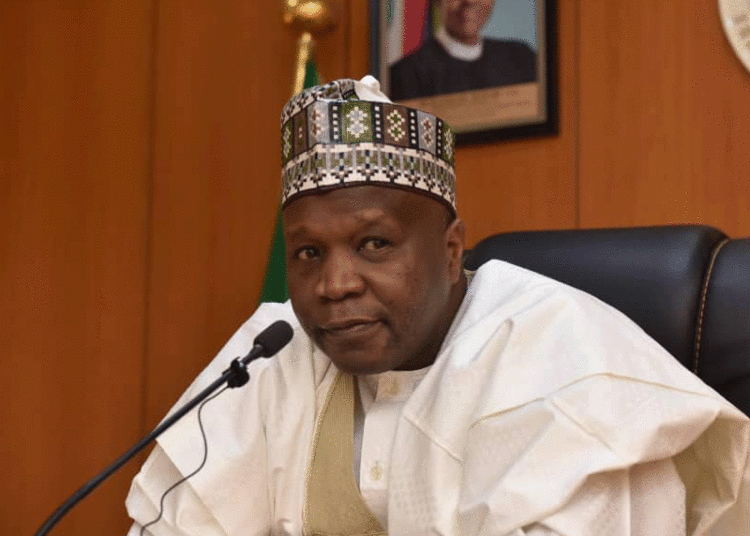The annual Hajj pilgrimage offers a unique opportunity not just for spiritual reflection, but also for examining the leadership qualities of public officials tasked with supporting their pilgrims. In 2025, as thousands of Nigerian Muslims made their way to the holy land, the actions of various state governors became a topic of national conversation. Among them, one name stood out prominently for the right reasons Governor Muhammadu Inuwa Yahaya of Gombe State.
Hajj is a sacred journey that demands serious logistical and emotional preparation. From financial aid to welfare and accommodation, governors are expected to play an active role in ensuring that their citizens experience a smooth and fulfilling pilgrimage. While many treated it as a political stage, Governor Inuwa Yahaya approached it as a spiritual obligation and a moral responsibility.
One of the most telling gestures of Governor Inuwa’s sincerity was his quiet distribution of 200 Saudi Riyals as a Sallah gift to each pilgrim from Gombe State. Unlike some of his peers, he did not use the gesture as a political tool. There were no media propaganda or publicity campaigns only the silent compassion of a leader who wanted to ease the Eid celebration for his people far from home.
The impact of those 200 Riyals was significant. It allowed pilgrims to enjoy their Eid in Mecca with dignity, offering them the ability to purchase personal items for themselves and their loved ones. The simplicity and discretion with which this gesture was carried out won the hearts of many.
More impressively, Governor Inuwa Yahaya was the only Nigerian governor who took swift and bold action in response to the Central Bank of Nigeria’s (CBN) policy on Basic Travel Allowance (BTA). The CBN had initially mandated that the 500-dollar BTA be disbursed via prepaid cards instead of cash, a move that disoriented many pilgrims.
While most governors did not take any action to oppose the policy without concern for its implications, Governor Inuwa saw the potential hardship it could create for his pilgrims. He immediately made arrangements to ensure that Gombe pilgrims received their full 500 dollars in cash, helping them navigate a foreign environment with ease and confidence.
This act of proactive leadership was later validated when the CBN made a U-turn and allowed for cash disbursement of BTA, affirming that Governor Inuwa’s choice was not only wise but deeply considerate of his people’s needs.
On the Day of Arafat perhaps the most spiritually important day of the Hajj Governor Inuwa Yahaya went above and beyond by personally providing high-quality meals to Gombe pilgrims.
Notably, these meals came from Albaik, a renowned Saudi Arabian restaurant famous for its premium food.
This provision was not part of the regular package offered by the National Hajj Commission of Nigeria (NAHCON). Rather, it was funded entirely from Governor Inuwa’s resources, a generous act undertaken purely for the sake of Allah, without any intention of seeking political accolades.
Pilgrims who benefited from this gesture spoke glowingly of the emotional comfort it brought them, as they saw it as a true reflection of leadership with heart a leader who remembered their hunger on the most physically demanding day of Hajj.
While Governor Inuwa was focused on practical welfare, some other governors appeared to turn the Hajj into a theatre for self-promotion. Instead of addressing the pressing needs of their pilgrims, they used the platform to win political favour or repair their public image.
In several states, pilgrims were left to fend for themselves due to poor preparation, lack of coordination, or sheer neglect. Some governors even left their states entirely without ensuring their pilgrims’ needs were met, exposing them to unnecessary hardship.
Worse still, reports emerged of some governors distributing up to 1,000 Saudi Riyals approximately ₦500,000 to each pilgrim, in what many observers viewed as political inducements rather than genuine welfare support.
These questionable gestures, though wrapped in generosity, lacked transparency and raised ethical concerns.
Such politicization of Hajj undermines the sanctity of the pilgrimage. It turns a deeply spiritual act into a tool for political gain and diverts attention from the essence of the journey humility, sacrifice, and submission to the will of Allah.
Governor Inuwa Yahaya’s approach, by contrast, restored dignity to the institution of leadership during Hajj. His model was one of quiet service, thoughtful decisions, and genuine care qualities that should define public service at all times.
His administration ensured seamless coordination with Gombe State Muslim Pilgrim Welfare Board officials, guaranteeing that Gombe pilgrims enjoyed decent accommodation, timely transportation, and health support.
This comprehensive approach has made Gombe’s Hajj operation one of the best-managed in the country this year.
His actions reflect a broader pattern of governance rooted in accountability, humility, and public welfare. Governor Inuwa did not need to grandstand his work spoke for him, and the gratitude of his pilgrims became the loudest campaign he could ever mount.
As the 2025 Hajj nears its conclusion, stories of Governor Inuwa Yahaya’s exceptional performance continue to circulate among pilgrims, religious leaders, and members of the press. Many have called him “a father figure” and “the people’s governor,” titles earned not through propaganda, but through visible acts of kindness.
In light of these accomplishments, it is both timely and appropriate to call on the Federal Government and NAHCON to recognize Governor Inuwa Yahaya as the Best Performing Governor for Hajj Welfare in 2025. Such recognition would not only honour his service but also set a benchmark for others to emulate in future pilgrimages.
In a political climate often marred by showmanship and insincerity, Governor Inuwa Yahaya has shown what true leadership looks like quiet, effective, spiritual, and people-centered. His performance during this year’s Hajj should not only be applauded but studied as a model of responsible governance rooted in faith, love, and public service.
– Shehu a journalist and public commentator, writes from Kano





